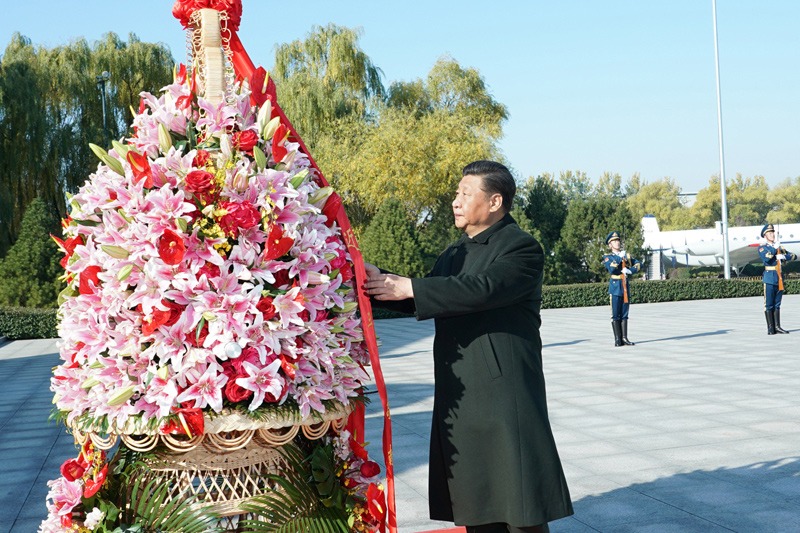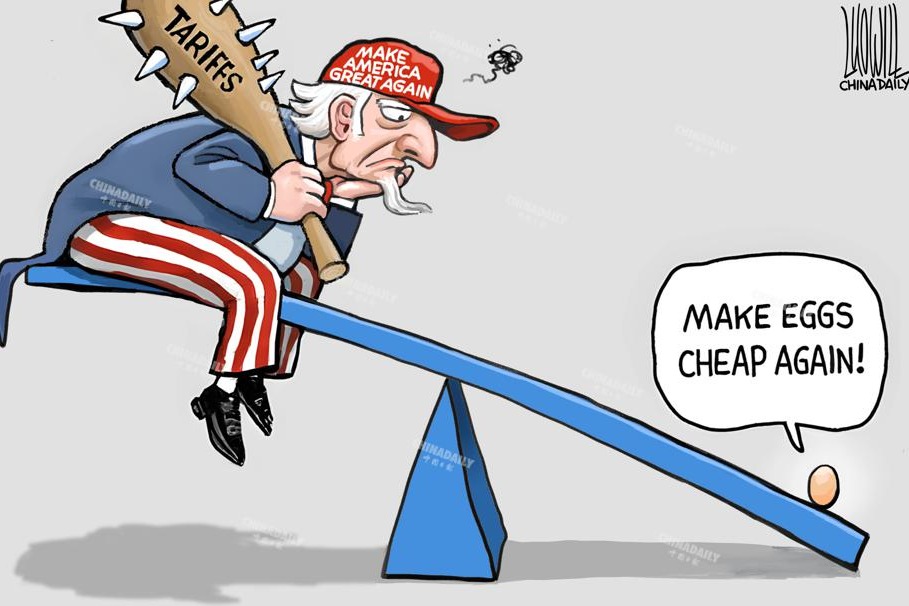US tariffs to cause stagflation, global fracture

US tariffs fracture global markets
US President Donald Trump announced a dual-track tariff system of "minimum baseline and reciprocal surcharge" on Wednesday. Under this policy, a 10 percent "minimum baseline tariff" will be imposed on all trading partners, effective April 5, while higher reciprocal tariffs will be levied in a tiered manner on countries or regions with significant trade deficits with the US, including China (34 percent), the EU (20 percent), Japan (24 percent), South Korea (25 percent), India (26 percent), Vietnam (46 percent), and Thailand (36 percent), effective April 9.
While ostensibly framed as upholding so-called fair trade principles, the policy is fundamentally flawed. It violates the economic theory of comparative advantage. The core tenet of comparative advantage lies in maximizing global efficiency through specialization, whereas reciprocal tariffs artificially enforce tariff parity, disregarding objective differences in resource endowments.
The policy also contravenes WTO rules. The most-favored-nation principle prohibits discrimination among trading partners, requiring equal treatment for all members. This directly conflicts with the discriminatory nature of reciprocal tariffs.
The implementation of reciprocal tariffs will have profound implications for the global economy. The policy will immediately disrupt global supply chains and increase trade costs.
Once enacted, the US effective tariff rate will surge from 2.4 percent to 25.1 percent — the highest level since 1910. This "tariff nuclear bomb" will trigger a 40 percent spike in procurement costs for multinational supply chains, particularly in deeply integrated sectors such as automobiles, electronics, and machinery, forcing firms to restructure global production networks.
According to some estimations, US imports could plummet by 8.76 percent over the next three to five years, with global exports and imports declining by 2.33 percent and 2.46 percent, respectively. Supply chain fragmentation will heighten trade costs and undermine sustainable global trade.
Furthermore, the policy risks exacerbating global recession and regional inequality. The IMF has warned that policy uncertainty is already dampening global growth. A prolonged trade war could shrink global GDP by 7 percent—equivalent to the combined economies of France and Germany. Developing nations face disproportionate harm: India, Vietnam, and other export-dependent economies risk losing US market access due to tariff barriers, while African countries, stripped of special and differential treatment, will see their development prospects further constrained.
Additionally, reciprocal tariffs will accelerate inflation and impose a heavier burden on consumers. Yale University's budget lab projects that reciprocal tariffs will raise US personal consumption expenditure prices by 1.7 percent in the short term if no retaliation occurs, or 2.1 percent and higher if retaliatory measures are taken. This translates to $3,400–4,200 in additional annual costs for the average American household to maintain living standards—a severe blow to consumer welfare.
At a critical juncture for global economic recovery, Trump's reciprocal tariffs epitomize a zero-sum mentality. Their short-term political gains pale against long-term economic damage, exacerbating trade tensions, triggering retaliatory measures, fracturing global markets, and ultimately jeopardizing international economic security and stability.
Lyu Yue is the executive dean of the Academy of Global Innovation and Governance, University of International Business and Economics.


































